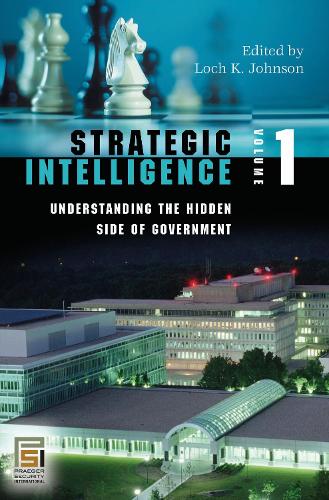
Strategic Intelligence: [5 volumes]
Publishing Details
Strategic Intelligence: [5 volumes]
Bloomsbury Publishing PLC
Praeger Publishers Inc
30th December 2006
United States
Classifications
Tertiary Education
Non Fiction
327.12
Physical Properties
Contains 5 hardbacks
1824
3459g
Description
While several fine texts on intelligence have been published over the past decade, there is no complementary set of volumes that addresses the subject in a comprehensive manner for the general reader. This major set explains how the sixteen major U.S. intelligence agencies operate, how they collect information from around the world, the problems they face in providing further insight into this raw information through the techniques of analysis, and the difficulties that accompany the dissemination of intelligence to policymakers in a timely manner. Further, in a democracy it is important to have accountability over secret agencies and to consider some ethical benchmarks in carrying out clandestine operations. In addition to intelligence collection and analysis and the subject of intelligence accountability, this set addresses the challenges of counterintelligence and counterterrorism, as well covert action. Further, it provides comparisons regarding the various approaches to intelligence adopted by other nations around the world. Its five volumes underscore the history, the politics, and the policies needed for a solid comprehension of how the U.S. intelligence community functions in the modern age of globalization, characterized by a rapid flow of information across national boundaries.
Reviews
This collection of 49 original essays edited by Johnson (political science, Univ. of Georgia) focuses mostly on how the 16 major U.S. intelligence agencies operate in the current dangerous environment of terrorism and globalization. Five topical volumes cover such issues as hidden bureaucracy, the intelligence cycle, covert action, counterintelligence, and accountability.While most other collections of this type are miscellaneous case studies or historical essays, this sturdily bound set is mostly about the present or very recent situation and about projections for the immediate future. It clearly conveys how politics and personalities adversely affect procedures and results. Appropriate for assigned course readings, this set will be of most interest to academic libraries, where it can complement the many specialized monographs already on the shelves. [Also available as an ebook] * Library Journal *
The books provide an excellent reference for students of the military, political affairs, foreign policy, or strategic planning. The supporting notes at the end of each chapter are especially helpful and should not be overlooked by the reader. * Parameters *
College-level specialty collections strong in military and political studies of foreign policy and strategy will find essential the in-depth, five-volume set Strategic Intelligence: Understanding the Hidden Side of Government. Here's a comprehensive survey of how the sixteen major U.S. intelligence agencies operate, how they collect information from around the world, and how they meet special challenges. Chapters analyze the intelligence community and both overt and covert actions, examining different approaches to intelligence and its management and policies and including a concurrent history of the politics and policies of the community. No serious college-level or specialty military collection should be without this in-depth reference. * Midwest Book Review - California Bookwatch *
Johnson brings together contributors from academia, intelligence agencies and other government organizations, think tanks, and the legal professions for this five-volume overview of the current status of the field of intelligence studies. * Reference & Research Book News *
Author Bio
Loch K. Johnson is Regents Professor of Political Science at the University of Georgia. Author of several books on U.S. intelligence and national security, he edits the Praeger Security International Series Intelligence and the Quest for Security.
